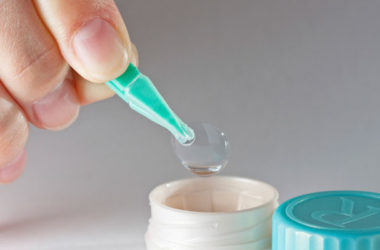The population of bad bacteria in the gut is kept in check by good bacteria. It’s exactly for this reason why the consumption of foods — yogurt, tofu, kimchi, sauerkraut, etc. — that supply your intestine with beneficial microbes is highly recommended. The inclusion of fiber-rich foods in the diet is also a wonderful idea as it feeds good bacteria, keeping your gut populated with those super microorganisms.
Aside from promoting healthy digestion which leads to the proper breakdown of foods and absorption of nutrients, did you know that those friendly microbes in your intestine also encourage optimum health in so many other different ways? By reading on, you will realize just how important those good bacteria are to your overall wellbeing.
But before we tackle those, let us first spend some time to looking at some amazing gut bacteria facts:
- In your small intestine, there are 100 to 1,000 microbes per milliliter. As you move further along the GI tract, their number greatly increase. Experts say that as much as 1 trillion of microbes per milliliter can be found in your large intestine or colon.
- However, it is said that there are only 10 to 100 microbes per milliliter in the stomach due to high acidity.
- There are more than 1,400 types of bacteria identified in your intestines. That’s a lot! To give you a clearer picture, it is said by the experts that as much as a couple of pounds of your total body weight is made up of those microscopic organisms residing in your gut!
- Unfortunately, the number of microbes residing in the gut can be influenced by a host of factors, and one of them is age. According to experts, people over 50 years of age have low levels of one of the most important species of gut bacteria, which is the so-called bifidobacterium.
- The intake of antibiotics can also wipe out friendly bacteria in your intestine, which can take as long as an entire year to repopulate.
Now that you know some of the most unbelievable facts about gut bacteria, let us now tackle how such microscopic organisms can influence your health big time:
They Strengthen Your Immune System
Good bacteria help keep the population of bad bacteria from exploding uncontrollably and eventually causing a variety of health problems. Furthermore, they help regulate your bowel movement, preventing disease-causing toxins and impurities from collecting within you.
They Help Keep Cholesterol Levels Low
One of the many functions of your liver is convert cholesterol into bile acids, which can be easily excreted by the body. Friendly bacteria control the population of bad bacteria which can produce toxins that cause the liver to produce less bile acids, thus causing cholesterol to accumulate in the blood.
They Promote Proper Hormone Levels
Some circulating estrogen is deactivated by the liver and released into the intestinal tract to be flushed out of the body. Thanks to good bacteria present in the gut, deactivated estrogen can be reactivated and sent back to the bloodstream. This helps maintain proper levels of the said hormone in a woman’s body.
They Assist in Maintaining Ideal Weight
It’s no secret that good bacteria aid in the proper digestion of foods. By allowing the body to be supplied with the nutrients it needs, there is no need for it to cause you to eat more food than necessary. Also, friendly bacteria in the gut help regulate mood (see below) which can keep you from binge eating.
They Help Maintain Good Mental Health
Did you know that your body also has the so-called enteric nervous system or ENS which is basically an extension of your brain that’s situated in the gut? It’s for this reason why intestine-related problems like IBS can also impact the mood. One way to keep your ENS in tip-top shape is by maintaining a good balance of bacteria in the gut.













